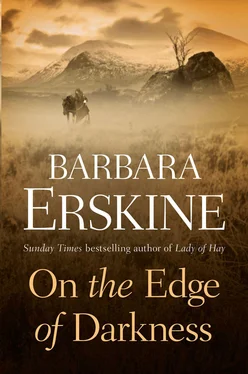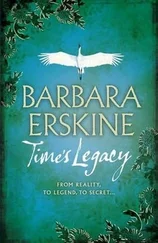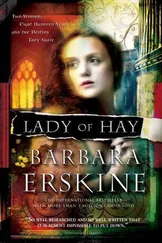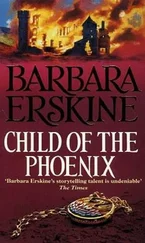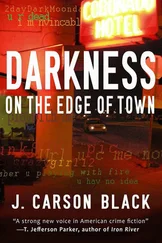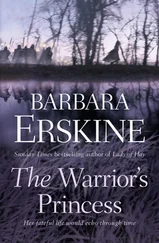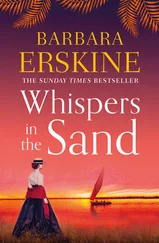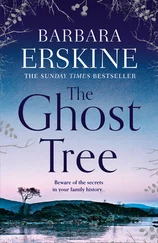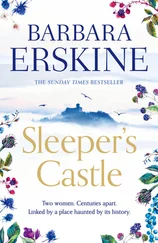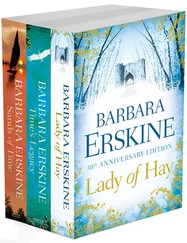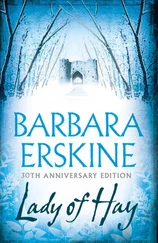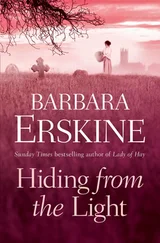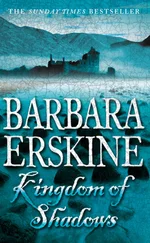Published by HarperCollins Publishers Ltd 1 London Bridge Street London SE1 9GF
www.harpercollins.co.uk
First published in 1998
Published by HarperCollins Publishers 2016
Copyright © Barbara Erskine 2016
Cover layout design © HarperCollins Publishers Ltd 2016
Cover photographs © Athina Strataki/Etsa/Corbis (woman leading a horse); Tom Gardner/Alamy (Dusk on Black Mount, Rannoch Moor, Scotland); WebbTravel/Alamy (view across the heather, Scotland)
Barbara Erskine asserts the moral right to be identified as the author of this work.
A catalogue copy of this book is available from the British Library.
This novel is entirely a work of fiction. The names, characters and incidents portrayed in it are the work of the author’s imagination. Any resemblance to actual persons, living or dead, events or localities is entirely coincidental.
All rights reserved under International and Pan-American Copyright Conventions. By payment of the required fees, you have been granted the non-exclusive, non-transferable right to access and read the text of this e-book on screen. No part of this text may be reproduced, transmitted, down-loaded, decompiled, reverse engineered, or stored in or introduced into any information storage and retrieval system, in any form or by any means, whether electronic or mechanical, now known or hereinafter invented, without the express written permission of HarperCollins.
Source ISBN: 9780007288656
Ebook Edition © March 2016 ISBN: 9780007320950
Version: 2017-09-08

In a symbol lies concealment or revelation.
THOMAS CARLYLE
Glendower: I can call spirits from the vasty deep.
Hotspur: Why, so can I, or so can any man;
But will they come when you do call for them?
WILLIAM SHAKESPEARE, Henry IV Part I
Contents
Cover
Title Page
Copyright
Epigraph
Prologue
Part One: Adam 1935–1944
Chapter One
Chapter Two
Chapter Three
Chapter Four
Chapter Five
Chapter Six
Chapter Seven
Part Two: Jane 1945–1960s
Chapter Eight
Chapter Nine
Chapter Ten
Chapter Eleven
Chapter Twelve
Chapter Thirteen
Part Three: Liza1960s–1980s
Chapter Fourteen
Chapter Fifteen
Chapter Sixteen
Chapter Seventeen
Chapter Eighteen
Part Four: Beth Early 1990s
Chapter Nineteen
Chapter Twenty
Chapter Twenty One
Chapter Twenty Two
Chapter Twenty Three
Chapter Twenty Four
Author’s Note
Keep Reading Barbara Erskine’s Novels
Keep Reading Sleeper’s Castle
About the Author
Also by Barbara Erskine
About the Publisher

Time, the boy noticed idly, whirled in gigantic lazy spirals like a great vortex in the sky. Lying on his back on the short sweet Welsh grass he stared upwards into the intense blue, his eyes half closed, and let the song of the skylark carry him upwards. Beyond the clouds there was an intensity of experience which drew him on beyond the now, to where past and future were the same.
One day, when he was older, he was going to travel there, beyond time and space, and study the secrets which he knew instinctively in his bones were his hidden inheritance. Then he would fight evil with good and bring light into the dark.
‘Meryn!’
His mother’s voice, calling from the cottage down in the sheltered valley beyond the mountain where he lay, brought him to his feet. He smiled to himself. Later, after he had had his supper, when the long summer dark was descending over the hill, and the only sound was the occasional companionable bleat of a sheep in the distance or the quavering hoot of an owl drifting down the valley on silent wings, he would slip out of the cottage and run up here again to dream his dreams and prepare for the great battle which one day he knew he would fight out there, alone, on the edge of darkness …

Adam 1935–1944
‘Why don’t you take a knife and kill me, Thomas? It would be quicker and more honest!’
Susan Craig was shouting now, her voice harsh with despair. ‘Dear God, you drive me to do this! You and your sanctimonious cruelty.’ She was standing near the window, tears pouring down her face.
Adam, thin, skinny, and tall for his age, which was fourteen, was standing outside his father’s study window, his arms wrapped tightly around his body, his mouth working with misery as he tried to stop himself shouting out loud in his mother’s defence. The quarrel, growing steadily louder and louder, had been going on for what seemed like hours, and for what seemed like hours he had been standing there, listening. What had she done – what could she have done? – to make his father so angry? He didn’t understand.
‘Now you take the name of the Lord in vain as well! Is there no end to your wickedness, you stupid, senseless woman?’ Thomas’s voice too was almost incoherent.
‘I’m not wicked, Thomas. I’m human! Is that so evil? Why can’t you listen to me? You don’t care! You never have, damn you!’ His mother’s voice was shrill, out of control, his father’s a deep rumbling torrent of words designed to override and to annihilate.
The boy’s eyes were blind with tears as he put his hands over his ears, trying to block out the sounds, but it was no use; they filled the echoing rooms of the huge old stone-built manse and spilled out of the windows and doors until they seemed to fill the garden and the surrounding village of Pittenross, the woods and even the sky.
Suddenly he couldn’t bear it any more. Stumbling in his haste, unable to see where he was going for his tears, he turned and ran for the gate.
The manse stood at the end of a quiet village street, hidden behind the high wall which all but encompassed house and garden, save where, at the far end of the vegetable patch, the broad sweep of the River Tay rattled over shingle and rock. To the left of the house stood the old kirk amongst its attendant trees, its lawns and gravel paths deserted behind high ornate railings and an imposing gate. To the right the street, lined by grey stone-built houses, was silent and at this hour empty of people.
Adam ran along the street, cutting down through Fishers’ Wynd, a small alley between high, blank walls, skirted some rough ground, half-heartedly gardened by the wife of one of his father’s elders, hopped across the river by way of shining black rocks and stones and, climbing a wire fence, began to run up through the thick woods which clung to the lower slopes of the hill. He ran until he could run no longer, sure that if he stopped he would still be able to hear the sounds of his parents quarrelling.
The quarrels had been growing worse over the past few weeks. He had no brothers or sisters to share his burden, no other family in whom he could confide, no one in the village he felt he could talk to. His loyalty to his parents was absolute and somehow he knew that this was private, not something that anyone else should know about, ever. But he didn’t know what to do, and he could not cope with what was happening. His beautiful, young happy mother, happy at least when he and she were alone together, whom he adored, had changed into a pale, short-tempered shadow of herself, whilst his father, always a large man, burly and of florid complexion, had grown larger and more florid. Sometimes Adam looked at his father’s hands; huge, powerful hands, the hands of a labourer rather than the hands of a man of God, and he shuddered. He knew how hard they could wield the strap. His father believed in beating his son for the good of his soul at the slightest transgression. Adam did not mind so much for himself, he was used to it. Almost. But he was terrified, blindly, completely and overwhelmingly terrified that his father might beat his mother.
Читать дальше
